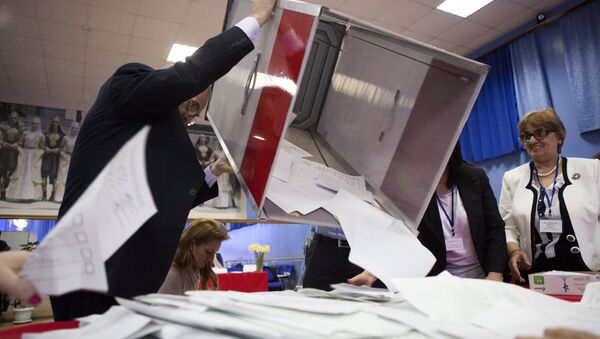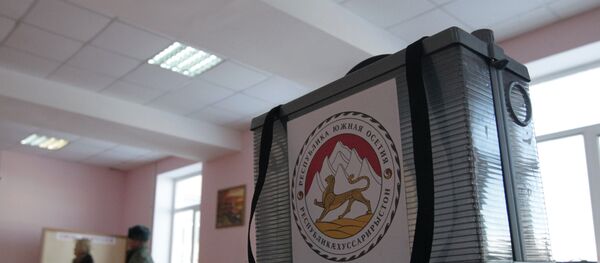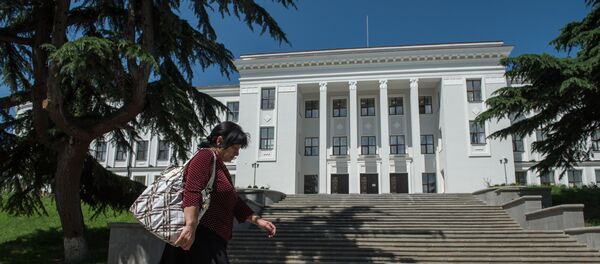"The European Union does not recognise the framework in which the so-called Presidential elections and the referendum on amending the name of the Georgian breakaway region of South Ossetia," the spokeswoman said, citing a statement issued on Saturday ahead of the vote.
She added that the European Union reaffirmed its strong commitment to peaceful resolution of the conflict, including the EU co-chairmanship of the Geneva International Discussions and the EU Monitoring Mission.
Earlier in the day, Kremlin spokesman Dmitry Peskov stated that the election in South Ossetia "was an absolutely politically competitive democratic electoral process." Head of the Russian State Duma’s delegation of observers Nikolay Govorin on Sunday confirmed that the election and referendum met the national legislation of South Ossetia, as well as the "universally recognized democratic principles and norms of organization and conduct of free, fair elections."
The breakaway republics of South Ossetia and Abkhazia declared independence from Georgia in the early 1990s. In August 2008, Georgia launched a military offensive against South Ossetia. Trying to protect local residents, many of whom held Russian citizenship, Russia sent troops to South Ossetia and engaged in a five-day war with Georgia. As a result, Russia managed to expel Georgian troops from the region and recognized independence of both Abkhazia and South Ossetia. Tbilisi does not recognize the republics' independence and considers them part of Georgia.




